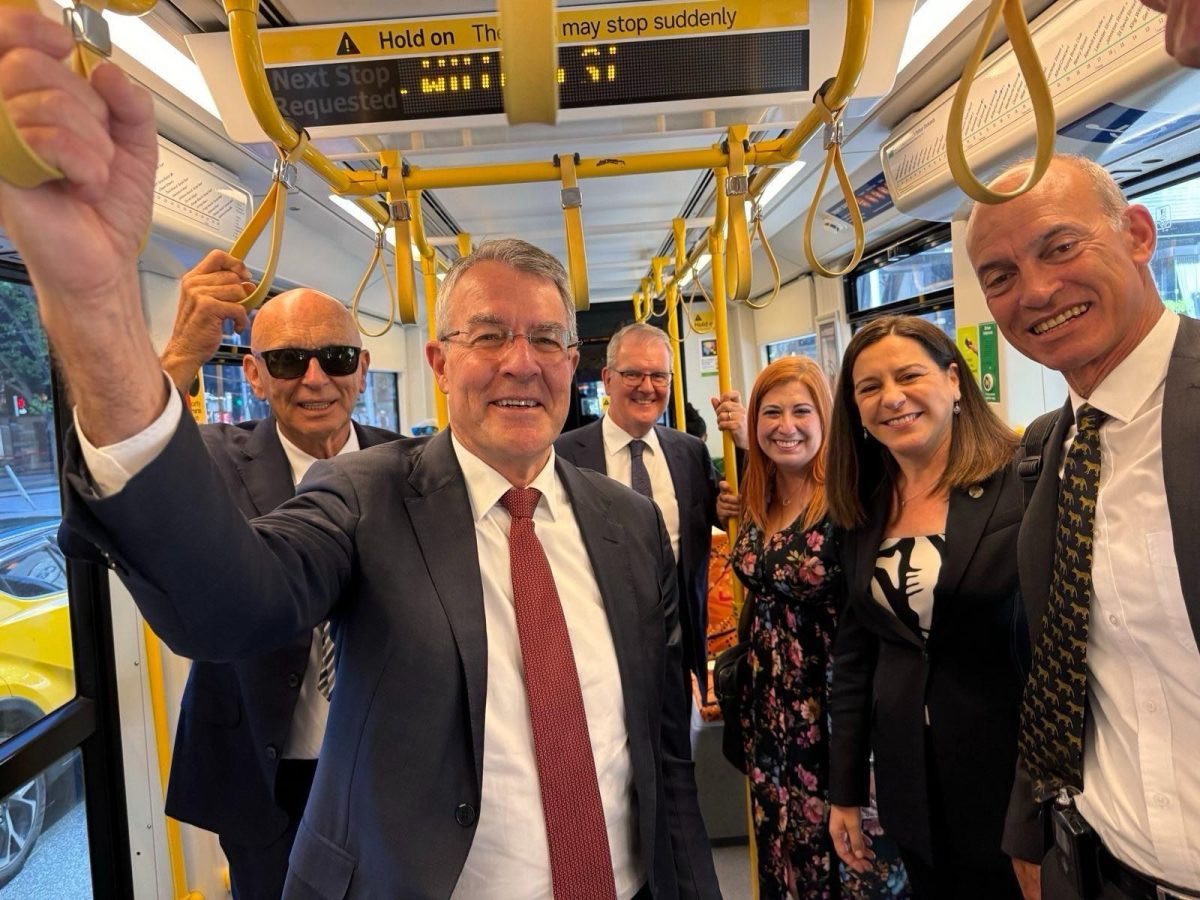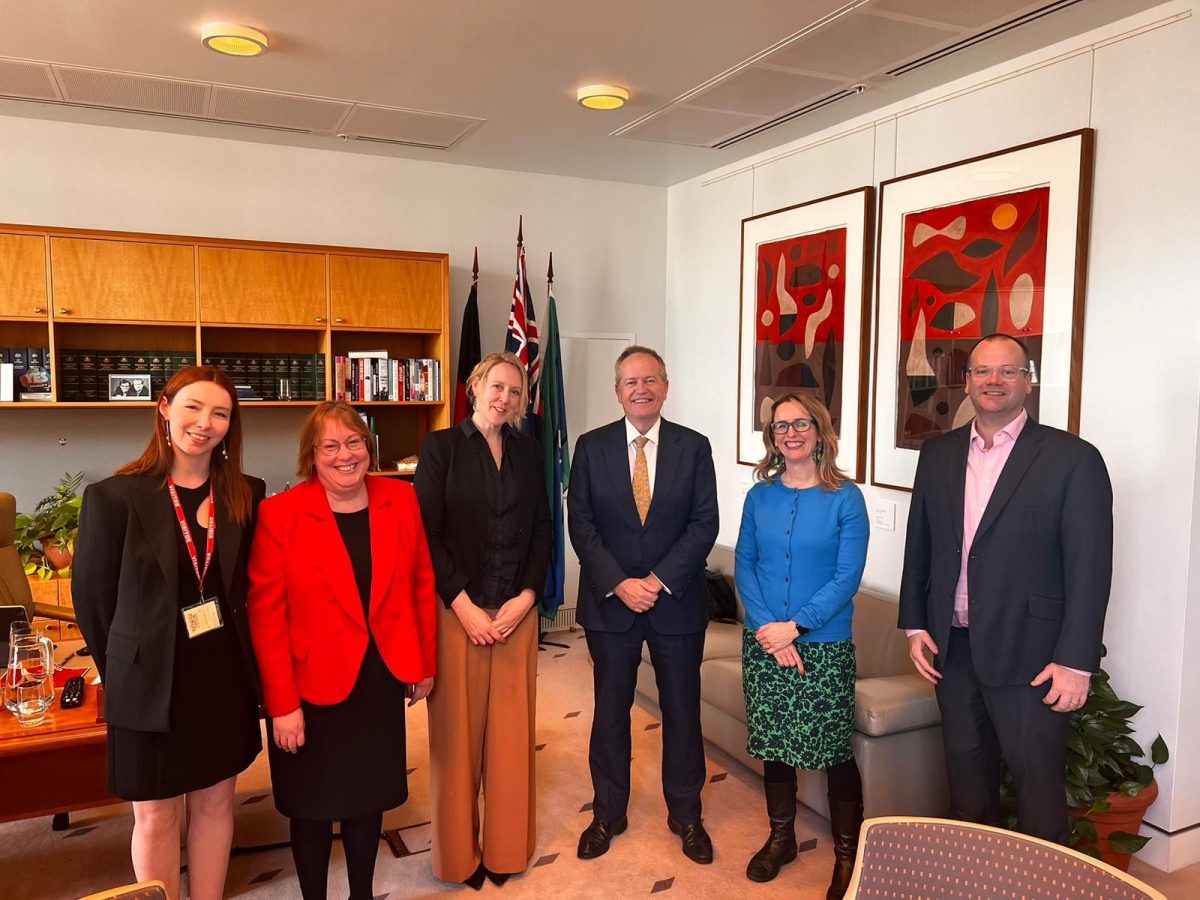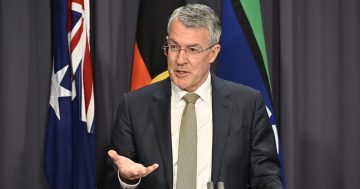
Attorneys-General (from left) John Quigley (WA), Mark Dreyfus (Federal), Michael Daley (NSW), Tara Cheyne (ACT), Jaclyn Symes (VIC) and Guy Barnett (TAS). Photo: LinkedIn.
Australia’s Attorneys-General have come to a consensus on a new $3.9 billion partnership for the legal assistance sector, but advocates are calling for it to include the queer, refugee and asylum-seeker communities.
Though announced in early September, the National Access to Justice Partnership (NAJP) wasn’t agreed to by every jurisdiction’s top lawyer until last week’s (22 November) Standing Council of Attorneys-General (SCAG) meeting in Melbourne. It will see an $800 million increase in funding to the community legal sector over the five years from 2025-26 – and will be the Federal Government’s largest-ever investment in legal assistance.
Commonwealth Attorney-General Mark Dreyfus said the increased and ongoing funding would ensure essential frontline services could operate more effectively and help the most vulnerable in the community, including people experiencing family, domestic and sexual violence (FDV).
“Legal assistance providers work tirelessly to ensure access to justice and equality before the law for all Australians,” Mr Dreyfus said. “The Commonwealth has committed to ongoing funding for the NAJP beyond the five-year life of the agreement.
“This provides stability and financial security for staff and ensures services are able to plan for the future.”
In response to the SCAG announcement, Community Legal Centres Australia (CLCA) has called on the public to petition the Attorneys-General, saying it is “the last chance to take action”.
For some time, CLCA’s campaign Save Community Legal Centres has pushed for goals including:
- $35 million this year to address the workforce crisis
- At least $270 million per year from 1 July, 2025, committed by December 2024
- $95 million for frontline CLC domestic and family violence work.
With the meeting in Melbourne last week confirming the terms of the NAJP, it’s now asking the Attorneys-General to not forgo listing LGBTIQ+ people, recent migrants, refugees and asylum seekers as priority groups under the new agreement.
Their pre-drafted letter tells the Australian chief legal officers that these diverse communities “experience significantly higher legal need” across the country, with CLCs specialising in helping to resolve “a range of everyday legal issues like domestic and family violence; harassment, abuse and discrimination; employment issues; immigration and visa issues; and many more”.
CLCs had to turn away more than 1000 people a day in 2023, including at least 340 victim-survivors of FDV, the sector’s largest area of work.

Community Legal Centres Australia representatives met various senators and MPs, including Government Services Minister Bill Shorten (centre), at Parliament a few months ago to advocate for the inclusion of queer people, refugees and asylum seekers as priority groups under the NAJP. Photo: LinkedIn.
More recently (21 November), the Human Rights Law Centre (HRLC) gave evidence to a Senate inquiry where it called on the Federal Government to “abandon its brutal deportation and surveillance laws“.
The Migration Amendment Bill 2024 was introduced on 7 November, a day after the High Court ruled that forcing 162 people released from indefinite immigration detention to wear ankle bracelets and live under curfews was unconstitutional.
HRLC claims that if passed, the legislation “would allow the government to exile refugees and migrants to other countries where they could be warehoused indefinitely”. It also insists that the government would be given “extraordinary powers to reverse protection findings made for refugees and continue imposing punitive visa conditions on those who remain here”.
On Thursday, the inquiry heard from Home Affairs Department group manager of immigration compliance, Michael Thomas.
He confirmed the bill gives the government authority to pay third countries to accept non-citizens on a removal pathway, including:
- Around 75,400 people lacking a valid visa
- 4452 people on a bridging visa as they make “acceptable arrangements to depart Australia”
- 986 people in immigration detention
- 246 people on a bridging visa resulting from the High Court’s ruling that indefinite detention is unlawful, with another 96 people who were on them before the decision
- 193 people in community detention.
The current National Legal Assistance Partnership (NLAP) is set to expire on 30 June, 2025, after which it will be replaced by the NAJP, which is expected to be published by 30 November, 2024.
In September, CLCA acknowledged the initial terms of the next agreement while each jurisdiction was still in negotiations with the Federal Government.
Chairperson Arlia Fleming said at the time it was an “encouraging first step, but there is a long way to go” as “only a fraction” of the $800 million in additional funding would come to CLCs. She also noted their disappointment that it did not include an “immediate lifeline”, despite the Independent Review of the NLAP recommending “an urgent injection of $35 million in 2024-25” to keep local services afloat.
“Our sector is at breaking point right now,” Ms Fleming said. “There are many people and communities across Australia who cannot wait nine long months for their CLCs to receive any additional funding.”



